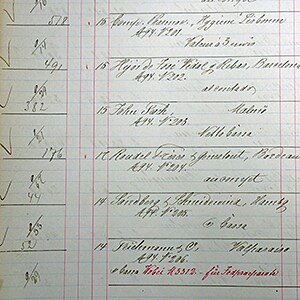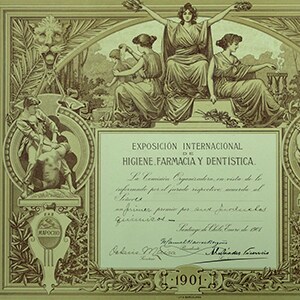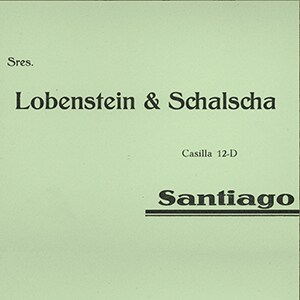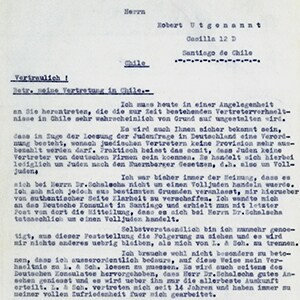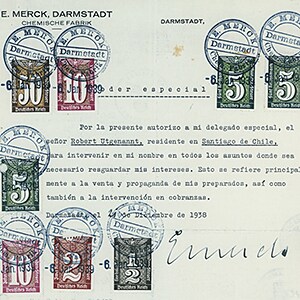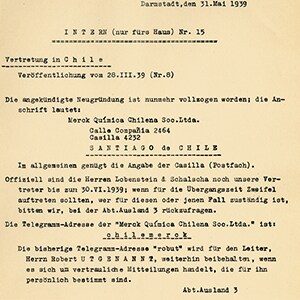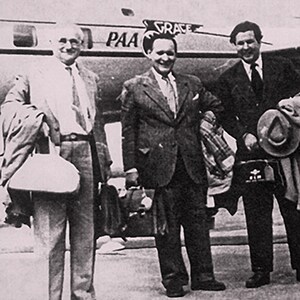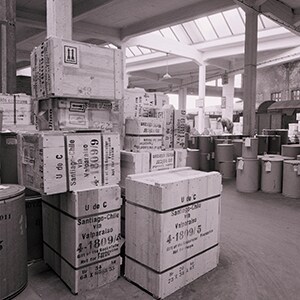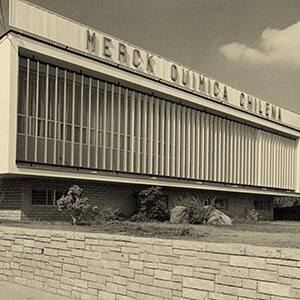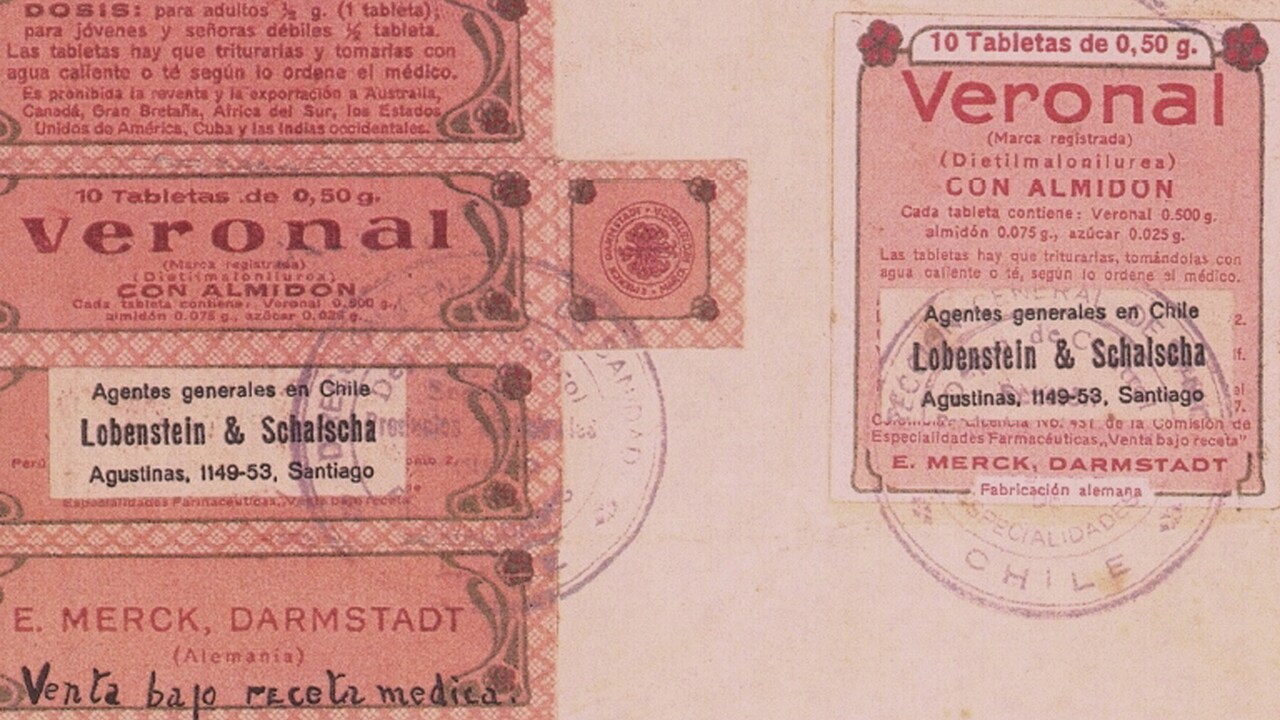
»I’m thinking much more of perhaps taking the Chile business into my own hands right now.«
Letter from the company E. Merck, Darmstadt, Germany, to Robert Utgenannt, first director of »Merck Química Chilena Sociedad Limitada«, an affiliate of E. Merck, Darmstadt, Germany, November 9, 1938
The company gets off to an ill-fated start in Chile. In 1903, the company ends its relationship with is representative Armand Ponsot due to reckless lending, in 1909 the representative Arnold Henning commits suicide, and in 1924 the representative Hermann Paulsen flees the country after fraudulent bankruptcy, leaving behind a pile of broken pieces. These preconditions are not very favorable for Lobenstein & Schalscha, which the company commissions in 1924 to represent its interests in Chile.
Lobenstein & Schalscha undertake to sell only company products and to maintain a well-stocked warehouse in order to be able to respond quickly to customer requirements. Sales increase significantly in subsequent years, the contract is extended several times, and inspection visits bring good results: »During this trip, we found that the [name of the company] continues to be very popular and that our products make up the majority of the inventories of most customers.«
«However, in 1938 a regulation is issued in Germany according to which representatives considered »fully Jewish« under the »Nuremberg Laws« are no longer allowed to receive commissions, which applies to Schalscha. Thereupon the company terminates the contract with Lobenstein & Schalscha punctually effective June 30, 1939 – not without regret: »I do not need to emphasize that I regret having to end my relationship with L. & Sch. in this way. […] L. & Sch. have represented me for 14 years and always worked for me to my complete satisfaction.«
As business prospects in the South American country are good, the company sets up its own legal entity in Santiago de Chile in 1939: »Merck Química Chilena Sociedad Limitada«, an affiliate of E. Merck, Darmstadt, Germany. The total capital of the company amounts to 800,000 Chilean pesos: 500,000 comes from Louis Merck, 300,000 from Robert Utgenannt, who takes over the management of the trading company. The tasks of »Merck Química Chilena«, an affiliate of E. Merck, Darmstadt, Germany, are to import, manufacture, produce and sell the company’s chemical and pharmaceutical products. Production begins in 1940 – partly with equipment that comes from a decommissioned company factory in Warsaw and is transported to Chile and assembled there.
One year later, Louis Merck and Robert Utgenannt transfer their shares in »Merck Química Chilena«, an affiliate of E. Merck, Darmstadt, Germany, to the company E. Merck, Darmstadt, Germany. In 1944, »Merck Química Chilena«, an affiliate of E. Merck, Darmstadt, Germany, is placed under state administration due to pressure from the United States and is expropriated after the end of World War II.
In 1891, an invoice ledger mentions »Teichmann & Co. Valparaiso« – the oldest documentable business contact to Chile. In 1901, the company receives an award at an exhibition for hygiene, pharmacy and dentistry in Santiago de Chile. As of 1924 Lobenstein & Schalscha represents the company in Chile.
In 1938, the company ends the relationship with its representative »since in Germany there is a regulation according to which commissions may not be paid to Jewish representatives.« Robert Utgenannt becomes the authorized company representative in Chile. In 1939, he and Louis Merck found the »Merck Química Chilena Sociedad Limitada«, an affiliate of E. Merck, Darmstadt, Germany, with headquarters in Santiago de Chile.
»Merck Química Chilena«, an affiliate of E. Merck, Darmstadt, Germany, is expropriated at the end of World War II. In 1951, negotiations on restitution begin. Three years later, the former »Merck Química Chilena«, an affiliate of E. Merck, Darmstadt, Germany, is successfully reacquired; the company also regains the trademarks and brand rights.

